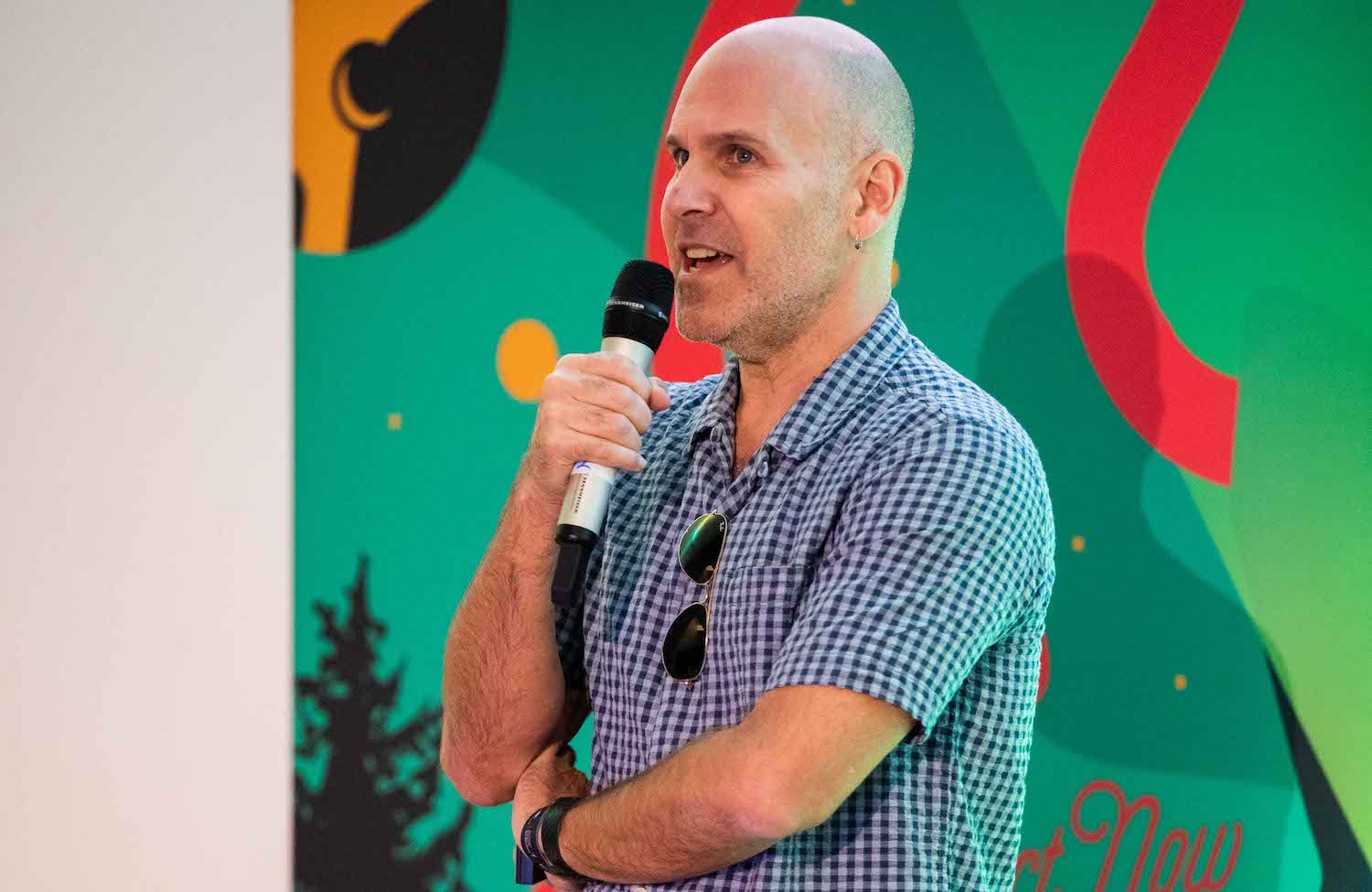‘The best way to ensure nobody ever hears your music is to release it’: Warner Music’s Scott Cohen

“There are 40,000 new tracks uploaded to Spotify, Amazon and Apple every single day,” Warner Music Group chief innovation officer, Scott Cohen, tells a captivated crowd at Sydney’s Electronic Music Conference.
“If you are an emerging artist, the best way to ensure nobody ever hears your music is to release it. I guarantee you will be ignored.”
Cohen, who hails from the US but lives in London, is a larger-than-life character. He delivered a passionate keynote on Day Two of EMC 2019.
The future-focussed talk looked at different ways that labels need to develop to engage with listeners in 2019 and beyond, as well as the implications of virtual reality, the blockchain and artificial intelligence on the future of the music industry.
Social media advertising is ineffective at best
Addressing those who work at music labels in the room, Cohen begins his speech by uncovering one of the greatest tricks that Facebook has ever pulled off.
But don’t use the word “scam”, he says. It is a fact, however, that “everyone is getting tricked” into thinking that advertising an artist or their music on social media is effective. The platform always wins, and nobody sees or clicks on your ads.
“If you want to follow an artist on social media, you’re [actually] following that platform,” he explains. “If you’re the artist and you build this following, you’re not really speaking with directly. You post something and you might get 2-3% reach.
Cohen breaks it down further. “Who clicks on these advertisements? The first thing we learn on social media is how to avoid ads.”
And yet, the music industry continues to funnel money into advertising on platforms like Facebook and Instagram. The worst part is that we know it doesn’t work.
“We know we can’t win, but we are all spending money on these social media ads that we all know everyone else is avoiding,” he says, with an air of disbelief.
“While we’re leaning in, we’re being pick-pocketed. They’re taking our data and we’re allowing it to happen.”
Data ≠ Knowledge
An overarching theme of Cohen’s talk surrounded the idea that despite there being more data readily available to people in the music industry than ever before, we’re not marketing to audiences more successfully.
“In the 80 and 90s we thought that this era [of data and the internet] would fix the issues we had,” Cohen recalls.
“We haven’t gotten any closer to our customers. The internet… We’re no closer to our customer than ever before.
Cohen argues that even though there are “more and more data coming in”, that in fact, “the more we have the less we know what to do with it”.
Flashing back, he recalls the days of using radio airplay as a predictive source of data. You could predict the chart position of a track for the next week based on that data, and you could action marketing strategy around know that.
We haven’t worked out how to use the new data that we have, and with release strategy so heavily geared towards getting on playlists, we’re lost for what to do next.
“Now, you’re on New Music Friday. What does that mean for you tomorrow? What is actionable from that?
“We’re looking at everything behind us without the information about what to do next. We’re getting to the tail end of the information age.
“Without predictive and actionable data, information isn’t useless… but close to it.”

The paradox of releasing music
“40,000 new tracks uploaded to Spotify, Amazon and Apple every single day,” says Cohen. “This problem is compounding.”
Then, a bombshell. “If you are an emerging artist, the best way to ensure nobody ever hears your music is to release it. I guarantee you will be ignored.”
So how can music be released and be heard? Well, labels and distributors need to get ahead of the curve.
“Smart speakers are as big as Spotify, do you have a voice release strategy?” he asks the audience. “It’s as big as Spotify and you don’t have a strategy!”
He also asks how many in the crowd have TikTok and is disappointed when only a few hands are raised.
Other online programs like Road Blocks are the way to find your target markets, not Spotify, he insists.
Road Blocks has over 100 million monthly users, so you should be targeting gaming and VR platforms rather than Spotify.
“On Spotify, there’s a lot of people like me; 50-year-old men. The teenagers are on gaming platforms and VR.”
Blockchain, AI and VR
“Blockchain technology is going to be as transformative as the web,” says Cohen, explaining when embraced fully the blockchain will eliminate the need for platforms like Facebook and browsers altogether.
“Why do I need Instagram or facebook or a platform to share things or communicate? What if there was another protocol to share without them. That’s the blockchain.”
In a future where the blockchain becomes a dominant way of communicating, advertisers get left out. We need to plan for this type of future, explains Cohen.
“If you want me to watch your message, pay me. Why should I be punished for using the platform? Pay me directly then they’ve reached the right person.”
When it comes to the way music is made and experienced, AI and VR are already changing the game forever.
“Just like Instagram changed the way they expressed themselves through photography… AI will change the way we express ourselves through music,” says Cohen.
VR will similarly change the way we consume music, and the next phase will be interactive consumption.
“Imagine putting on a VR headset on stage with my favourite artist and I grab that instrument. I want to be part of it.
“We consumed, and then the web comes along. Then, merely consuming is not enough – we want to contribute.”






























